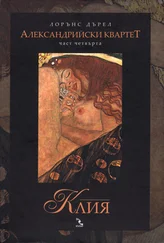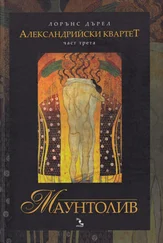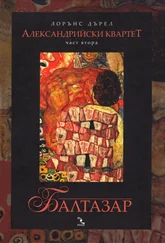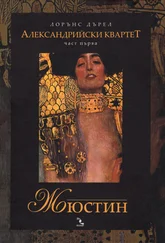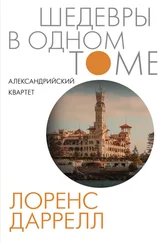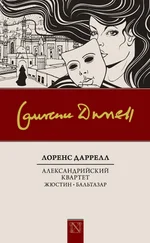Лоренс Даррелл - Prospero's Cell
Здесь есть возможность читать онлайн «Лоренс Даррелл - Prospero's Cell» весь текст электронной книги совершенно бесплатно (целиком полную версию без сокращений). В некоторых случаях можно слушать аудио, скачать через торрент в формате fb2 и присутствует краткое содержание. Жанр: Проза, на английском языке. Описание произведения, (предисловие) а так же отзывы посетителей доступны на портале библиотеки ЛибКат.
- Название:Prospero's Cell
- Автор:
- Жанр:
- Год:неизвестен
- ISBN:нет данных
- Рейтинг книги:4 / 5. Голосов: 2
-
Избранное:Добавить в избранное
- Отзывы:
-
Ваша оценка:
- 80
- 1
- 2
- 3
- 4
- 5
Prospero's Cell: краткое содержание, описание и аннотация
Предлагаем к чтению аннотацию, описание, краткое содержание или предисловие (зависит от того, что написал сам автор книги «Prospero's Cell»). Если вы не нашли необходимую информацию о книге — напишите в комментариях, мы постараемся отыскать её.
Prospero's Cell — читать онлайн бесплатно полную книгу (весь текст) целиком
Ниже представлен текст книги, разбитый по страницам. Система сохранения места последней прочитанной страницы, позволяет с удобством читать онлайн бесплатно книгу «Prospero's Cell», без необходимости каждый раз заново искать на чём Вы остановились. Поставьте закладку, и сможете в любой момент перейти на страницу, на которой закончили чтение.
Интервал:
Закладка:
29.7.37
My material is rapidly getting out of control once more. Theodore has been to stay for a few days. Characteristic of his shy heart he sends us presents. For N. a box of Turkish delight with pistachio-nuts in it; for me a flute made of brass, with the word Mo[Greek] ('Loneliness') engraved upon it. It is impossible to get a note out of it so I have asked the peasants to find me the shepherd boy to teach me.
Theodore has recorded the latest miracle of St. Spiridion with sardonic humour. An old man from a country village appeared at the X-ray laboratory with what was diagnosed as an incurable cancer of the stomach; medicine having washed its hands of him, the old man and his family made a mass-petition to the Saint. Within three weeks he reappeared before the doctors. The cancer had been reabsorbed. Theodore is professionally downcast, but secretly elated to find that the Saint has lost none of his art. It gives him the opportunity for a long disquisition upon natural resistance. It appears that the peasants can stand almost any physical injury which can be seen; but that a common cold may carry off a patient from sheer depression and terror. He gives an instance of a peasant who had a fight with his brother and whose head was literally cloven with an axe. Tying the two pieces of his skull together with a handkerchief the wounded man walked three miles into town to visit a doctor. He is still alive, though feebleminded.
Zarian has contributed a wonderful piece of natural observation for our notebooks. He observed last Tuesday that the four clockfaces of the Saint's church all registered different times of day. Intrigued, he asked permission to examine the phenomenon, scenting an ecclesiastical mystery. But it turns out that the clock-hands are made of the flimsiest material and that the pressure of the wind upon the clock. . Therefore when the north wind blows the northern clock-face is slowed up considerably, while when the south wind takes up its tale the southern clock-face shows a loss of time.
Not that time itself is anything more than a word here. Peasant measurement of time and distance is done by cigarettes. Ask a peasant how far a village is and he will reply, nine times out of ten, that it is a matter of so many cigarettes.
30.7.37
It is important, when writing about the peasants, not to falsify them with sentimental humour. It is very much the fashion to represent them as comic and quaint abstractions attached to picturesque names like Paul and Socrates and Aristotle. The fact that they dress oddly seems to drive city-bred writers into a frenzy of romantic admiration. But really the average Balkan peasant is quite commonplace, as venal, cunning, or admirable, as a provinical townsman. And the sentiment which attaches to the pastoral life of these picturesque communities (which treasure amulets against the devil and believe in a patron saint), has been very much overdone. Anthropologists are only just beginning to visit the suburbs of our greater cities with their apparatus. Their findings should establish a greater sense of connection between the peasant and the townsman.
3.8.37
Theodore has one particular friend who is a so-called lunatic. He sits with the others most of the time under the trees outside the whitewashed asylum building, looking at his own fingers; but at times an abrupt desire to talk seizes him, and when it does he unerringly selects for audience the so-called sane who pass along the dusty white road outside the railings. His name is Basil and he has yellow dilated eyes and a deep voice. Theodore often pauses on his way out of town to greet him, rattling his stick against the railings to draw his attention, and shifting the great green bag of tree-spore and seed which he carries about him on his walks. The lunatic sticks his head through the bars and smiles artfully. He says:
'They say I am mad.'
'Yes,' says Theodore gravely.
'And here I am.'
'Yes,' says Theodore.
'I am fed and clothed and do not have to work.'
'Yes.'
'Well — am I mad, or are the people outside mad?'
This in the purest vein of Ionian logic and is to be commended to students of sociology. Basil's dossier lists him as a melancholic. A novice in a nearby monastery he early showed a gift for casuistry — that melancholy science. But he dips his fingers into Theodore's little paper bag of sweets with a transfiguring smile of happiness before he goes back to his place on the garden bench among the others.
6.8.37
'If you had an opportunity to put a question to Socrates what would it be?' writes Zarian. 'I would ask him if he was a happy man. I am sure that greater wisdom imposes a greater strain upon a man.' At the 'Partridge' this view is contested bitterly by Peltours and N. Wisdom, they say, teaches the ratiocinative faculty how to rest, to attain a deeper surrender of the whole self to the flux of time and space. Theodore recalls Socrates' epileptic fits while I find myself thinking of a line from Donne prefixed to 'Coryat's Crudities': 'When wilt thou be at full, Great Lunatique?'
7.8.37
Fishing demands the philosophic attitude. We have been waiting a week for propitious nights to use the carbide lamp and the tridents and at last the wish has been granted: deep still water and a waning moon which will not rise until late.
After dinner I hear the low whistle of the man by the sea and I go out on to the balcony. He is shipping his basket and tridents and screwing his carbide-lamp to the prow. To-night I am to try my hand at this peculiar mode of fishing. The tridents are four in number and varying in size; besides them we ship the octopus hook — attached to a staff about the size of a billiard cue — for octopus is not stabbed direct but coaxed: whereas squid and fish are victims of a direct attack.
Small adjustments are made. He removes his coat which smells of glue and wood shavings and bales some of the water out from under the floor-boards. Then we cast off and move slowly out into the darkness. The night is deep and clean-smelling and utterly silent. Far out under the Albanian hills glow the little flares of other carbide-fishers. Anastasius circles in the margin of rocks below the house and begins to talk quietly, explaining his practice. Midges begin to fly into our faces and we draw down our sleeves to cover our arms. He rows standing up and turning his oars without breaking the surface — since it is into this spotless mirror that we must gaze, and the least motion of wind smears all vision.
Presently the carbide lamp is lit and the whole miraculous underworld of the lagoon bursts into a hollow bloom — it is like the soft beautiful incandescence of a gas-mantle lighting. Transformed, like figures in a miracle, we gaze down upon a sea-floor drifting with its canyons and forests and families in the faint undertow of the sea — like a just-breathing heart.
Now hoarse in the darkness beyond the point the Brindisi packet-boat brays once; and nearer a grampus gives a Blimp-like snort. Then we are alone again.
Anastasius talks quietly. When I am tired I must not hesitate to tell him, he says. He himself is indefatigable and in good weather fishes half the night. But he is not really talking to me; he is talking himself into the receptive watchfulness of the hunter — the unreasoning abstraction which will allow him to anticipate the movement of fish; he is like a chess player combining possibilities in his own mind and testing them, so to speak, upon futurity.
We move in a concave ripple. Deep rock-surfaces, yellow and green and moving like a human scalp with marine fucus. Fishes, a school, the silver-white of [Greek] dawdle to the entrance of a cave and goggle at us. Each wears a black dapple on the back, and they look, in their surprise, like a row of semiquavers. Then, as if frightened by some purely marine event they disappear with the suddenness of a thrown switch. An eddy of wind purb the surface and Anastasius dips his twig of almond into the bottle of olive oil hanging at the prow. He scatters a few drops before us and the water clears again and steadies. I catch my breath, for there, crouching on a patch of reddish sand is the famous and eatable [Greek] (I take him to be the sea-scorpion) with his bulldog head flattened upon a stone. Anastasius gets him squarely through the body at the first lunge and soon he is fluttering and ebbing in the darkness at my feet — a small dying pulse, uncomfortably tapping against the dry wood. Twice I put him in the basket and twice he leaps out and beats against the wood like the pulse of a dying bird.
Читать дальшеИнтервал:
Закладка:
Похожие книги на «Prospero's Cell»
Представляем Вашему вниманию похожие книги на «Prospero's Cell» списком для выбора. Мы отобрали схожую по названию и смыслу литературу в надежде предоставить читателям больше вариантов отыскать новые, интересные, ещё непрочитанные произведения.
Обсуждение, отзывы о книге «Prospero's Cell» и просто собственные мнения читателей. Оставьте ваши комментарии, напишите, что Вы думаете о произведении, его смысле или главных героях. Укажите что конкретно понравилось, а что нет, и почему Вы так считаете.


